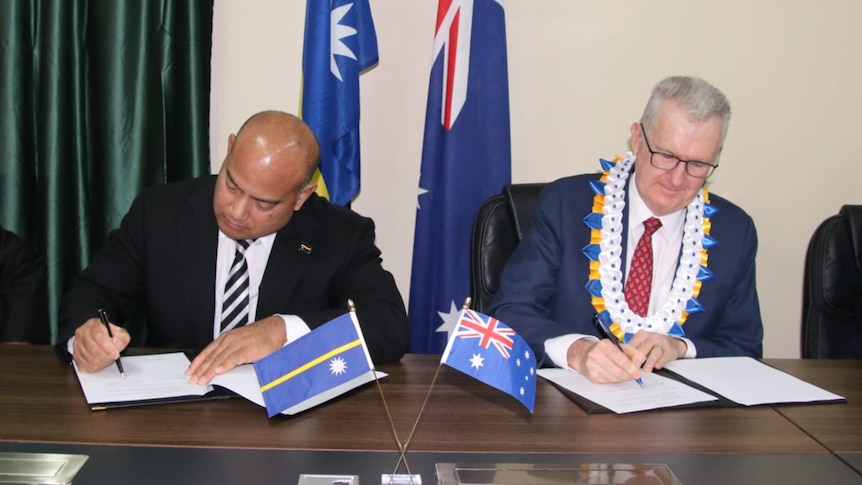
A fourth member of the NZYQ cohort has returned to immigration detention following the issuance of a visa to Nauru, as the Australian government accelerates its plan to deport convicted criminals to the Pacific island. Detained on Thursday, this individual could be transferred to Nauru within weeks, potentially becoming the first deportee under a recently signed multi-billion-dollar agreement.
The arrangement, which was finalized last month, pertains to 358 former detainees referred to as the NZYQ cohort. These individuals were released into the community after a High Court ruling nearly two years ago deemed indefinite detention illegal. Since that ruling, the government has sought solutions to manage the non-citizens, many of whom have histories of violent offenses. The resettlement initiative was first proposed in February 2023.
Three cohort members initially received Nauruan visas as part of a trial to test the new deportation powers. However, their deportation has faced delays due to individual legal challenges. Following the passage of revised legislation last month, the government indicated that newly issued visas would not include a stay of deportation.
Tony Burke, Australia’s Home Affairs Minister, emphasized the straightforward nature of the situation: “It’s not complex; if your visa has been cancelled, leave.”
Significant Financial Implications for Nauru
Under the memorandum of understanding, which remains partially unpublished, Nauru will receive $408 million upon the arrival of the first deportee. This initial payment will be followed by an annual sum of $70 million over the three-decade lifespan of the agreement, contingent on the settlement of significant numbers from the cohort. The total projected cost of the deal could reach approximately $2.5 billion, translating to over $7 million for each individual if all cohort members are ultimately resettled in Nauru.
The financial arrangement is expected to provide substantial long-term revenues for Nauru, as most of the funds will be placed in a trust to generate interest. According to Nauruan budget documents, this deal is anticipated to yield significant economic benefits.
The deportees will reportedly reside in the community upon arrival in Nauru, which has a population of approximately 12,000, and will not face re-detention. While officials have not disclosed a timeline for further visa applications, they have expressed a commitment to a “calm and steady” relocation process.
Controversy Surrounds Deportation Laws
Opposition to the deportation plan has emerged from lawyers, advocates, and some members of the crossbench. A Senate committee with a Labor majority has criticized the laws enhancing the government’s deportation powers, arguing that they are not adequately justified. The recent legislative changes, which apply retroactively, allow the government to bypass procedural fairness in scenarios involving third-country reception arrangements.
Burke has previously defended the necessity of these laws, stating that non-citizens have exploited procedural fairness provisions to hinder their removal from Australia. He noted that the new measures primarily target individuals who have “exhausted all legitimate avenues” to remain in the country.
In a landmark ruling in 2023, the High Court overturned a long-standing precedent that enabled the indefinite detention of non-citizens unable to return home. This decision stemmed from the case of one man known only as NZYQ, leading to the release of hundreds of detainees who had failed character assessments but were not likely to face deportation. All had served their sentences for various crimes, many of which were violent in nature.
As Australia moves forward with its deportation strategy, the implications for both the NZYQ cohort and the island nation of Nauru remain significant, both legally and financially.







